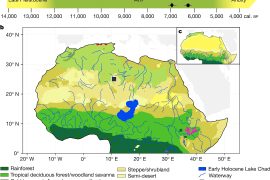
Most people don't know what 'climate justice' is, but support it anyway
Recent global surveys reveal a surprising disconnect – most people, including those from regions hardest-hit by climate change, don’t understand the term “climate justice.”
These findings bear critical implications for communication and advocacy efforts in the fight against global warming.
Understanding climate justice
The international study was led by researchers in the School of Psychology at the University of Nottingham.
“Climate justice is increasingly prominent in climate change communication and advocacy but little is known about public understanding of the concept or how widely it resonates with different groups,” wrote the researchers.
The study engaged 5,627 adults across 11 countries, including Australia, Brazil, Germany, India, Japan, the Netherlands, Nigeria, the Philippines, the United Arab Emirates, the United Kingdom, and the United States.
The research marked a departure from previous studies, extending its reach beyond Europe and North America.
The study revealed that while people might fail to link their understanding of the climate crisis to climate justice, they recognize the social, economic, and historical injustices forming the crisis’s fabric.
Beliefs aligned with climate justice
The researchers found that two-thirds of the respondents were not familiar with the term “climate justice.” Despite this, the majority expressed support for beliefs aligned with climate justice.
These beliefs include the understanding that: climate change has more severe impacts on the poor (78% agreement); those hit hardest should have a say in climate change decisions (78%); and capitalism and colonialism are elements underpinning the crisis (70%).
Impacts of climate change
Climate justice recognizes that climate change impacts are uneven across society, affecting marginalised groups most adversely. These are the groups often overlooked or underrepresented in selecting and implementing societal responses to climate change.
Furthermore, climate change-related policy-making processes often fail to acknowledge the politically voiceless communities’ legitimate interests, leading to their further disenfranchisement.
“Indigenous peoples, women, low-income earners, racialized minorities and other marginalized groups face the greatest risks from climate change,” wrote the study authors. “Ill-considered climate policies can worsen the disproportionate burden on such groups.”
This climate justice perspective allows for a critical examination of the intersections between the climate crisis and deep-seated social injustices.
Endorsement of climate justice principles
The research was led by Dr. Charles Ogunbode, a professor of applied psychology at the University of Nottingham.
“Taking account of climate justice as we respond to a changing climate is key to orientating our societies towards solutions that are fair and equitable. It is ironic that research tends to be limited to what people in more affluent regions believe about climate change and climate justice,” said Dr. Ogunbode.
“Citizens of frontline i.e. climate-vulnerable countries, are largely confined to being the subjects of climate discourse, as opposed to active participants. The unbalanced discourse matches the inequalities that characterize climate change itself.”
“By revealing the wide endorsement of climate justice principles around the world, we hope that climate advocates will leverage our research to further pressurize policymakers and leaders to enact just responses to the climate crisis.”
Inequities in climate action
The absence of a clear understanding of the term “climate justice” has profound implications for global climate action.
When people do not recognize the link between social inequities and climate change, they may struggle to support policies or actions designed to address these intersections.
Experts warn that this gap in understanding could hinder the progress of much-needed climate solutions that prioritize the most vulnerable communities.
A deeper understanding of climate justice
Moreover, the failure to integrate the concept of climate justice into mainstream climate discussions risks perpetuating the very injustices that climate change exacerbates.
Without widespread comprehension, efforts to craft equitable responses to climate challenges may overlook the needs of those most affected.
This highlights the importance of not only educating the public on the scientific facts of climate change but also on the socio-economic dimensions that drive its unequal impact.
By raising awareness and promoting a deeper understanding of climate justice, advocates hope to inspire more inclusive and fair climate policies that reflect the voices and needs of marginalized communities across the globe.
The study is published in the journal Nature Climate Change.
—–
Like what you read? Subscribe to our newsletter for engaging articles, exclusive content, and the latest updates.
Check us out on EarthSnap, a free app brought to you by Eric Ralls and Earth.com.
—–













